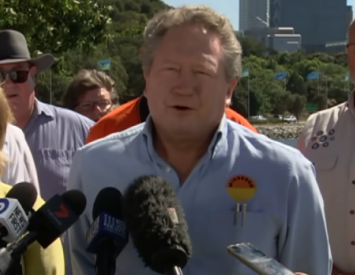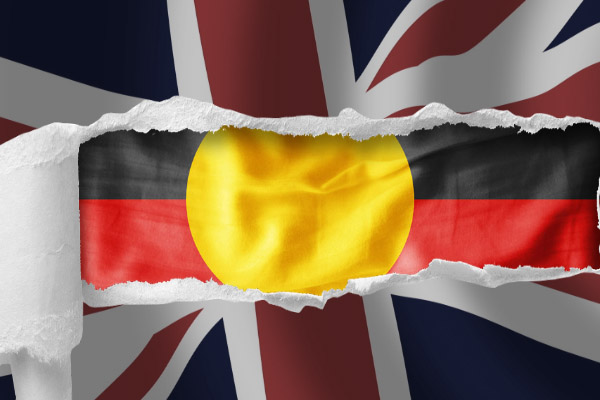When Indigenous Australians are being denied linguistic rights during incarceration, our court system is being undermined, writes Dr Robert Wood.
FROM THE defunding of cultural publications by the Australia Council for the Arts to university issues of protest and course diversity, freedom of expression is under sustained attack in Australia today.
We also see this when one considers the criminal justice system and that the courts are a site in our democracy which is being undermined. This includes recent changes to its due process, the failure to engage with evidence and the prohibition of media to report on sensitive issues.
What this points towards is a concerted effort to limit freedom of expression and, as a result, a desire to deny a central tenet of liberalism by its very defenders.
It matters then that freedom of expression is not only saying what you want, it is also about the conditions and language one uses to say it and the context in which it is expressed. It includes what is permissible and what is admissible.
That it has become a bastion of privilege rather than a right for all – especially the vulnerable – means we are so in danger of protecting freedom of expression that we actually deny it. In other words, people have a responsibility to speak freely as long as they don't use hate speech and perhaps, just as importantly, they have a responsibility to be truthful.
When we think of freedom of expression in this way, we realise that climate denialism, genocide denialism and Shoah denialism are against responsible freedom of expression. How you say a thing matters as do the facts of the matter. This is where protest movements that call on us to "tell the truth" are central to the functioning of our democracy.
When one looks at the courts today – just as when one looks at literary journals or the university – we see that we are losing the democratic rights and traditions we have come to expect.
Firstly, we must cite the ongoing issue of Indigenous incarceration. Where this becomes an issue of freedom of expression is where linguistic rights are denied, but also where courts abrogate their responsibility to administer justice. We see this when we consider the case of Kumanjayi Walker, whose case has remained open partly because of the size of the evidence brief against the police officers charged with his murder.
To be certain, there have been complications associated with COVID-19, but it remains true that Walker’s murder is also unresolved because of the denial of the circulation of information. This is about freedom of ideas, the linguistic and discursive rights of remote communities and the responsibilities of lawyers when it comes to cases involving deaths in custody specifically. Quite simply — justice delayed is justice denied.
Secondly, in an evasive interview on Insiders on 31 May 2020, Attorney-General Christian Porter relied on technical reasoning for a secret hearing that barred access for reporters. It concerns Australia’s role in East Timor and while undoubtedly having an impact on national security, Porter continued to avoid answering why the media has been censored.
If justice delayed is justice denied, we must note that justice in secret is justice denied.
This suggests that we are not getting the information we should as members of the public — not only because journalists are not allowed in courts but also because ministers do not answer reasonable questions. If the court works in our name as a public service and if members of parliament do too, then we have the right to know as a fundamental issue of freedom of expression.
Thirdly, we must note the expansion of extra-judicial powers that are proposed when it comes to home affairs.
This includes the possibility of privately interrogating children as young as 14.
Here, it is a case of justice perverted, justice denied.
If we consider that rights enable responsibilities, what does it say about the responsibilities of children when they are denied the right to fair representation, including the presence of a parent or guardian?
This is unprecedented and dangerous territory when it comes to the law, prosecution and the ongoing denial of fair process that includes censorship, information and press freedom. When taken together, this points to a coordinated attack on freedom of expression, especially in light of a broader definition than commonly understood.
It has become something of a shibboleth that politicians do not want to waste a crisis. But it seems that they are laying waste to the criminal justice system and in their sights are the most vulnerable — Indigenous communities, our neighbours in East Timor and children.
This is not about strengthening the legal mechanisms that support Australian democracy — it is an attack on the powerless by the powerful just as the proposed changes to section 18C of the Racial Discrimination Act were about hate speech under the pretext of religious freedom.
That this is being allowed to happen by politicians who would claim liberalism as a guiding principle only suggests they are so out of touch with an intellectual tradition, that a convenient culture war has allowed them to burn the very reason they became politicians in the first place.
Responsible freedom of expression does not mean saying whatever you want to say. Nor does it mean denying translators or failing to read evidence, barring courtroom access, or interrogating children who cannot tell their story to journalists afterwards.
Freedom of expression means knowing how we can protect the people who need it most, in and of and for themselves, not because of what they give us when they are hard done by under the law.
Dr Robert Wood is chair of PEN Perth. A Malayali with East Indian Ocean connections, he lives on Noongar Country in Western Australia. The author of four books, Robert has held fellowships at the University of Pennsylvania and Columbia University.
 This work is licensed under a Creative Commons Attribution-NonCommercial-NoDerivs 3.0 Australia License
This work is licensed under a Creative Commons Attribution-NonCommercial-NoDerivs 3.0 Australia License
Support independent journalism Subscribe to IA.












